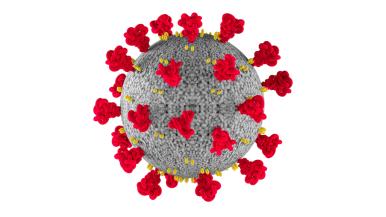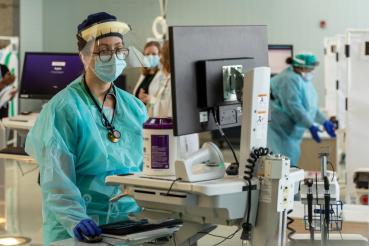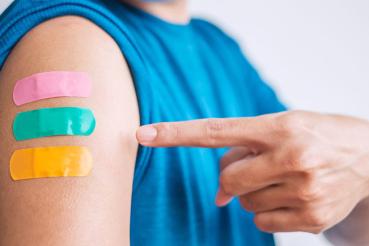Scientists around the world are watching to see how omicron, a new variant of the virus that causes COVID-19, may behave differently than current strains.
The World Health Organization labeled omicron a variant of concern that warrants enhanced surveillance and sequencing efforts — the type of work being performed by the Regional Innovative Public Health Laboratory at Rush for the Chicago Department of Public Health as part of its ongoing surveillance of the virus circulating in the Chicago area.
Omicron has been reported in South Africa and a quickly growing number of other places, including Ontario, Canada. WHO says omicron has several mutations — including more than 30 on the spike protein, the part of the virus that attaches to cells to cause infection and is the target of antibody responses. Previous variants have had 10 to 15 mutations in spike.
“We know its genome sequence, which we will be able to detect and monitor in our lab,” said Hannah Barbian, PhD, a Rush genomic virologist who is part of the RIPHL team. “We don’t yet know exactly what those mutations mean, but that number of mutations means there is more to study in terms of how the virus spreads or behaves.”
In an interview with Fox 32 Chicago, Barbian said, “The biggest questions now are ‘Is this virus more transmissible?’ and ‘Does this virus evade antibody responses?’ We don’t know either yet, but scientists are working really hard to figure that out.”
At Rush, the RIPHL scientists study samples of positive COVID-19 tests collected from 11 hospitals across Chicago, as part of a contract with the Chicago Department of Public Health. The molecular lab runs genomic sequencing of the SARS-CoV-2 samples and performs other analyses that the department requests.
While omicron has not yet been reported in the United States, scientists have detailed information on the variant that they can study now.
“We are looking at the exact mutations that this virus has,” she said. “We have seen some of these mutations before in other variants, and so we are comparing data to see how those mutations changed the virus. And we are looking at the new mutations, those we haven’t seen before, and trying to predict how they might affect the virus.”
While more is learned about the omicron variant and how it compares to Delta and other variants, current COVID-19 protections offer the best protection against the virus, federal and local experts say. On Monday, the Centers for Disease Control and Prevention encouraged everyone age 18 and older to get a COVID-19 booster shot.
“Getting vaccinated against COVID-19 or getting a booster shot when it’s due are crucial, as is continuing to mask in crowded indoor public places,” said Mary Hayden, MD, co-director of the RIPHL and chief of infectious diseases at Rush University Medical Center. “Also, using rapid COVID testing adds another layer of safety before, say, gathering with extended family during the holidays, especially if you will be with people who have compromised immunity.”




